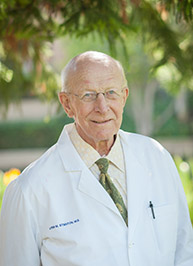
Though it is normal for people to have inattention or unfocused motor activity, people who have ADHD have more frequent and severe behavior problems. Formerly referred to as ADD (attention deficient disorder). ADHD is a condition that both children and adults can have. Symptoms can vary person to person but most include: paranoia, being easily distracted, poor organization skills, easily distracted and inability to focus. A patient with ADHD said her symptoms included “always being fidgety, couldn’t sit still, and had a tremendous hard time when it came to focusing.”
Being diagnosed with ADHD requires a comprehensive evaluation by a licensed clinician. The clinician will not only look over a person’s symptoms, but will take note of how long their symptoms last. Symptoms such as daydreaming and hyperactivity must be chronic or long-lasting, impair a person’s ability to function and result in a fall back in a person’s development for his or her age. Though scientists are still not sure what causes ADHD, like many other illnesses, a number of factors can contribute to ADHD such as:
- Genes
- Brain injuries
- Low birth weight
- Smoking, alcohol and being exposed to toxins at a young age
While there is no cure for ADHD, there are available treatment options for people who have been diagnosed. Treatments include medications, behavioral therapy and support groups (education). Medications have been grouped into two classes: stimulants and non-stimulants. Treatment options are easily tailored to the needs of most patients, but differ from patients depending on response. The workhorse medication in both children and adults has and continues to be Methylphenidate (Ritalin). There are common side effects to ADHD medication including loss of appetite, drowsiness, nausea and frequent headaches. Many people feel the side effects of their ADHD medications are worth dealing with to get the benefits. Get help from your doctor if they’re too severe and interfering with your daily routine. Though there are many variations of other medications as well as dose forms, careful observation can produce normal lifestyles for once disabled patients.
Children and adults who suffer from ADHD need guidance and understanding from their friends, family and coworkers. They need to feel accepted and supported in order to function in a group or social setting. Some studies have shown that meditation, yoga and working out are more natural treatments to help ease ADHD symptoms. Overall, ADHD is a serious condition and should be monitored by a healthcare professional. If you think you or a loved one has symptoms of ADHD, don’t ignore it, get help from a doctor. Together, you’ll be able to create a flight plan that works best for you.
The information provided is for general interest only and should not be misconstrued as a diagnosis, prognosis or treatment recommendation. This information does not in any way constitute the practice of medicine, or any other health care profession. Readers are directed to consult their health care provider regarding their specific health situation. Marque Medical is not liable for any action taken by a reader based upon this information.
